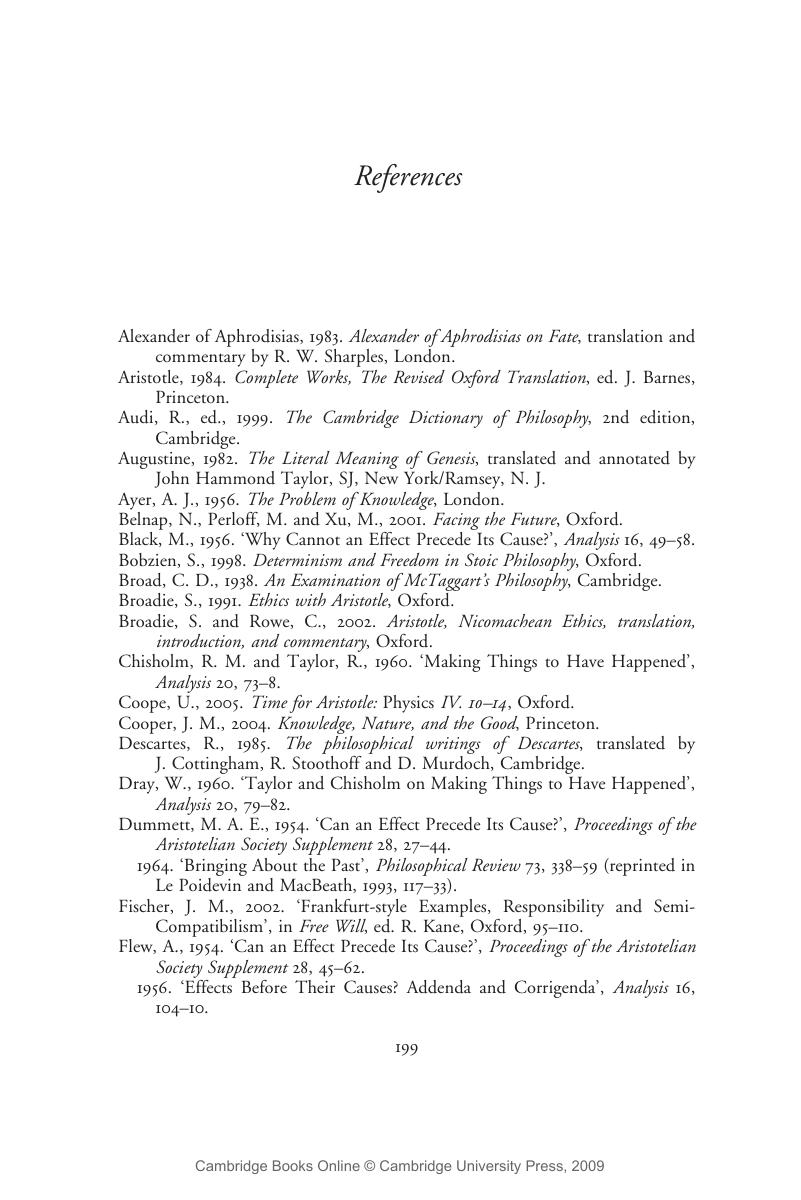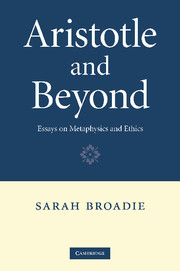Book contents
- Frontmatter
- Contents
- Preface
- Acknowledgments
- Chapter 1 Affecting and being affected
- Chapter 2 Backwards causation and continuing
- Chapter 3 From necessity to fate: An inevitable step?
- Chapter 4 Alternative world-histories
- Chapter 5 A contemporary look at Aristotle's changing Now
- Chapter 6 Nature and craft in Aristotelian teleology
- Chapter 7 Soul and body in Plato and Descartes
- Chapter 8 Aristotle and contemporary ethics
- Chapter 9 On the idea of the summum bonum
- Chapter 10 What should we mean by ‘the highest good’?
- Chapter 11 The good of practical beings: Aristotelian perspectives
- Chapter 12 Taking stock of leisure
- References
- Index of names
- References
References
Published online by Cambridge University Press: 25 June 2009
- Frontmatter
- Contents
- Preface
- Acknowledgments
- Chapter 1 Affecting and being affected
- Chapter 2 Backwards causation and continuing
- Chapter 3 From necessity to fate: An inevitable step?
- Chapter 4 Alternative world-histories
- Chapter 5 A contemporary look at Aristotle's changing Now
- Chapter 6 Nature and craft in Aristotelian teleology
- Chapter 7 Soul and body in Plato and Descartes
- Chapter 8 Aristotle and contemporary ethics
- Chapter 9 On the idea of the summum bonum
- Chapter 10 What should we mean by ‘the highest good’?
- Chapter 11 The good of practical beings: Aristotelian perspectives
- Chapter 12 Taking stock of leisure
- References
- Index of names
- References
Summary

- Type
- Chapter
- Information
- Aristotle and BeyondEssays on Metaphysics and Ethics, pp. 199 - 201Publisher: Cambridge University PressPrint publication year: 2007



